- News
- Reviews
- Bikes
- Accessories
- Accessories - misc
- Computer mounts
- Bags
- Bar ends
- Bike bags & cases
- Bottle cages
- Bottles
- Cameras
- Car racks
- Child seats
- Computers
- Glasses
- GPS units
- Helmets
- Lights - front
- Lights - rear
- Lights - sets
- Locks
- Mirrors
- Mudguards
- Racks
- Pumps & CO2 inflators
- Puncture kits
- Reflectives
- Smart watches
- Stands and racks
- Trailers
- Clothing
- Components
- Bar tape & grips
- Bottom brackets
- Brake & gear cables
- Brake & STI levers
- Brake pads & spares
- Brakes
- Cassettes & freewheels
- Chains
- Chainsets & chainrings
- Derailleurs - front
- Derailleurs - rear
- Forks
- Gear levers & shifters
- Groupsets
- Handlebars & extensions
- Headsets
- Hubs
- Inner tubes
- Pedals
- Quick releases & skewers
- Saddles
- Seatposts
- Stems
- Wheels
- Tyres
- Health, fitness and nutrition
- Tools and workshop
- Miscellaneous
- Buyers Guides
- Features
- Forum
- Recommends
- Podcast
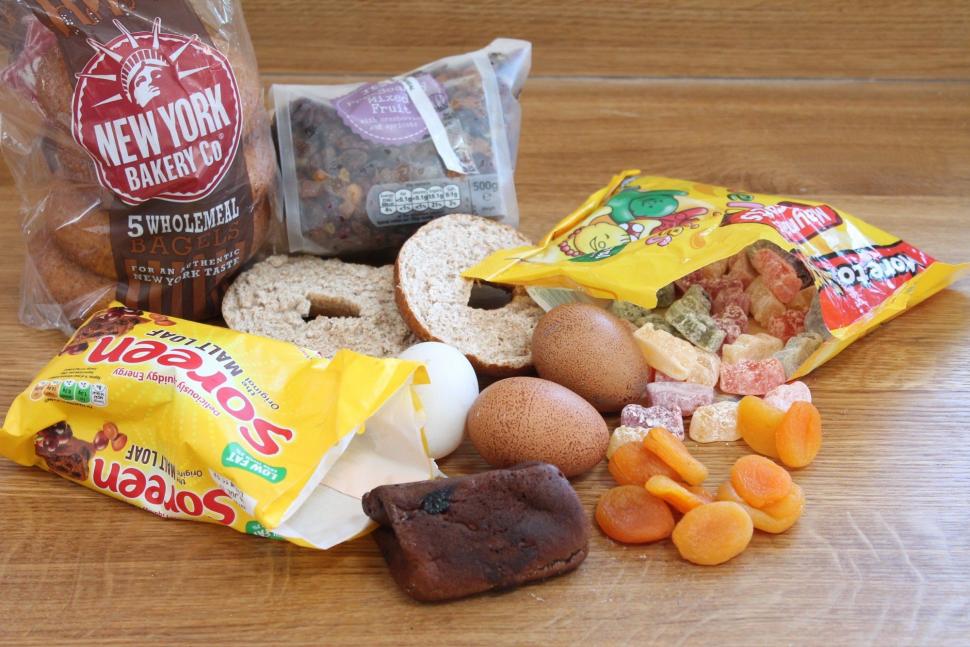 Food - 4 (1).jpg
Food - 4 (1).jpgHow to eat right for sportives and long rides
If you have a big ride coming up that’s going to take several hours – maybe a sportive, an Audax or a personal challenge – you’re going to need some sort of nutritional strategy to keep your performance up right to the end. Put bluntly, you need to get some food and drink down your neck, so what should you choose?
One thing to say up front is that one size does not fit all when it comes to nutrition and hydration. Just because your mate is one of those freaks who rides all day on a bottle of water and half a dozen jelly babies, that doesn’t mean you should try to do the same. Plus, food on which you thrive might make your friend gag or feel uncomfortable in the saddle.
We’re all different, so take the advice we offer here as a guideline. You need to fine-tune things and work out exactly what works for you on training rides before the big day itself.
The days leading up to your ride
What you eat prior to your ride is crucial. Some people like to boast that they've stormed it the morning after a few pints and a kebab; fine, but that’s not the way to give yourself the best chance of doing well.
Advice that performance nutritionist Annie Simpson gave us about what to eat in the days leading up to a time trials holds true for longer rides too.
“Make sure you are eating healthily and consistently throughout the day, getting a portion of carbohydrate and protein with every meal,” she said. “There should be no need to increase what you eat leading into the event as your natural tapering (reducing your training) will allow your muscles to store the energy from carbohydrate.”
You need to drink plenty too.
“Dehydration is not something you can reverse in a couple of hours,” said Annie. “In fact, it can take several days to fully rehydrate. Taking regular sips of water, sugar-free squash or sports hydro tabs is advised in the days leading up to the [event]. As a rule, we advise you always to try and stay just ahead of feeling thirsty.”
The morning of your ride
An ideal breakfast before you get on the bike is something like porridge made with milk. This provides you with slow-release carbohydrates that will give you a sustained supply of fuel during your big ride, along with some protein. Bagels and eggs is another good option.
You might see advice that says you should have breakfast three hours before a long ride, but what if you’re starting your ride at 7am? Okay, set your alarm super-early if you’re racing and you want to make sure you perform at your absolute peak, but otherwise just try to eat as soon as possible when you get up. Maybe have a little snack and a drink waiting by the side of your bed for you to grab when you wake.
Eating during your ride
Eat and drink a little and often right from the start of your big ride. Don’t wait until you get hungry or thirsty or you’ll be playing catch up… and you might never actually catch up.
So what does ‘little and often’ actually mean? It’ll vary according to the individual and the intensity at which you’re riding, but aim for around 30-60g of carbohydrate per hour – and it is all about carbs when you’re on the bike. Some people advise 0.5-1g of carbohydrates per kilogram of bodyweight per hour. Any more than that and your body won't be able to process it.
You might be able to handle quite a lot of carbs without trouble, or you might get gastrointestinal distress by having too much – you can definitely overdo it – so, as usual, check out what’s right for you in training.
Space your eating and drinking out, taking something on board every 15mins or so.
This is all getting a bit theoretical; what does 60g of carbohydrate look like?
It’s this many dried apricots…
…this much dried fruit…
…and this much malt loaf (the sliced bit, obvs!).
There are also a zillion energy products out there that have their nutritional content printed on the back, so if you want to go down that route it’s easy to consume the right amount.
There are certainly people out there who don't follow the carbohydrate advice. If you swear that you like to ride all day fuelled only by pork pies, who are we to argue? It's just, you know, that's not what we'd suggest as your start point.
If you’re comfortable eating on the bike you can just grab something out of your pocket regularly, but you’ll probably still need to stop at a food station sooner or later.
If you want to be efficient on a sportive, your best bet when you get to a feed station might be to refill your bottles, grab a few bits and pieces – maybe an apple and a slice of fruit cake – stick them in your pockets and get moving again, then do the same at the next stop. That makes more sense than riding until you’re absolutely hanging and then stopping for a blowout.
Energy gels are another option. They're a lightweight source of concentrated energy and many people swear by them for longer rides. Other people just can't stomach them, so make sure you do a trial run ahead of time.
Of course, if making the most of the feed stations is all part of the event for you, that’s a different matter. It’s up to you, of course, but remember the 60g per hour thing and bear in mind that necking half a chocolate gateau isn’t going to get you to the finish line any sooner.
Drinking during your ride
Of course, you don’t have to eat all of the carbs you need, you can get them via drink which also has the benefit of keeping you hydrated too (see below), of course.
Getting 60g of carbs per hour is easy if you go for a commercially available sports drink. That's the amount in 750ml of OTE’s Orange Energy Drink, for example.
You can make your own energy drink by mixing 500ml of apple juice with 500ml of water and adding half a teaspoon of table salt. Make something you like for the first part of your ride and you’ll be far more likely to drink enough.
During longer events you’ll need to drink regularly and probably want to get some food in your stomach from time to time. Our advice would be not to have anything that you haven’t tested out during training. Some people get an upset stomach with certain energy drinks, for example, and others spin out on too many caffeine gels. Fifty miles into a sportive is a bad time to find out that you’re one of them.
You also need to drink enough to stay properly hydrated. We all sweat at different rates, and the intensity at which you ride along with the weather on the day will have a huge effect here so, as ever, find out what works for you in training (sorry to keep going on about it but it’s really important!). As a start point, though, aim to drink about a 500ml to 750ml even in cooler conditions and go from there. On hot days you might need much more than that.
What should you drink on a big ride? The mainstream answer is that you should go for a sports drink on anything more than an hour or two because most offer the right amount of carbs with enough electrolytes to replace those you sweat out. That’s the safe option to make sure you don’t hit the skids.
The alternative answer is that a lot of people aren’t into chugging loads of sugary drinks all day long. Some riders are happy drinking water, even on longer rides, and getting energy from food alone. We know the sports science arguments against doing this, so shoot us down in flames and tell us we’re the spawn of the Devil if you like, but some people get along just fine like this.
One thing to bear in mind here is something called hyponatremia, which is what you get if you drink so much plain water before and during an event that you reduce the sodium level in your blood to a dangerous level. It’s not a massive possibility but it can happen. You can avoid it by adding electrolyte tabs to your water, which is what our man Dave Atkinson does on his long Audax rides because he finds energy drinks too sweet. The tabs are small and don’t weigh a lot, so you can carry a bunch in your jersey pocket. Bonus!
Oh, one last thing: keep your nutrition strategy going right to the end of your ride. Say you’re doing a 100-miler. It’s easy to get to 80 miles, say, and think you’re pretty much home and hosed. 20 miles left? Pah! That’s nothing… so you stop eating and drinking. Then at 95 miles you find yourself crawling into the George and Dragon and asking for a pint of Coke and a Snickers.
After your ride
So you’ve made it to the end of your ride. Congratulations! Some events will have food and drink waiting for you at the finish line and, fair enough, you’re likely to pitch into whatever you can lay your hands on. That’s fine, you deserve it.
If you want to recover as efficiently as possible, though, you should think about getting the right mix of carbs and protein down in order to restore your depleted energy reserves and help your body’s repair processes.
If you want to get technical about it, you’re looking for a 3:1 or 4:1 ratio of carbohydrates to protein. What does that mean in real terms? You can, of course, buy specific recovery drinks/foods that’ll give you the right mix, but chocolate milk is a decent alternative. Tuna or chicken sandwiches are good too, as is a banana and a pint of milk.
You really want to have a proper meal within two or three hours, and make sure you drink plenty in order to restore your level of hydration.
Carb-packed foods for carrying with you
• Malt loaf 60g carbs per 100g
• Fig rolls 66.3g carbs per 100g
• Jelly babies 78g carbs per 100g
• Marzipan 50g carbs per 100g
• Dried apricots 63g carbs per 100g
• Trail mix 45g carbs per 100g
You don't have to follow the rules all the time. It turns out that a favourite emergency cycling snack for the road.cc team is the humble Snickers bar (48g), containing 26g of carbs and available from every filling station/corner shop in the land. Yes, there's a lot of fat in there too – we're not saying it's ideal sports nutrition by any stretch of the imagination – but it might get you out of a hole.
Fuelling a 100-mile ride
How should you plan a nutritional strategy for a 100-mile ride?
First, work out how long you’re likely to be riding. If you think you'll average 18mph, for example, it’ll be just over 5:33hrs but err on the side of caution. Let’s plan for 6hrs to allow for a couple of punctures and a bit of a headwind.
Working on 60g of carbs per hour, you’re looking at 360g (6 x 60g) of carbs for the ride, and working on 750ml of fluid per hour, you’re looking at 4.5 litres (6 x 750ml) of fluid for the ride (we're assuming you've checked in training that these figures work for you).
You could plan to get half of those carbs from energy drink and half from food. That means 180g from food, right?
You could plan to eat:
• 1/4 of a malt loaf 40g carbs
• 6 fig rolls 78g carbs
• 8 jelly babies 42g carbs
• 6 dried apricots 20g carbs
Total 180g carbs
That’s not all that much to carry in your jersey pockets. You’re going to spread out the eating of that evenly over the whole ride.
On to the drinking… You’re going to need 4.5 litres of fluid over the course of your ride, which is six large 750ml bottles (if there are lots of food stations you'll be able to take smaller bottles, obviously).
You need to get 180g of carbs from your drink. A large 750ml bottle gives you about 60g of carbs, so you need three of those and three of water. Bingo!
You could plan to have two large 750ml bottles on your bike, one filled with energy drink and the other containing water. Drink from them alternately and aim to finish them both at about the two hour mark, or the nearest feed station to that.
Refill your bottles, one with energy drink, the other with water, and drink those two by about the four hour mark.
Refill them a second time and that should see you through to the finish.
Sorting out your nutritional strategy in advance really isn't difficult so don't just wing it. Testing out what works best for you in training and then putting together a quick plan will save you making any mistakes on your big ride and allow you to enjoy the day.
Mat has been in cycling media since 1996, on titles including BikeRadar, Total Bike, Total Mountain Bike, What Mountain Bike and Mountain Biking UK, and he has been editor of 220 Triathlon and Cycling Plus. Mat has been road.cc technical editor for over a decade, testing bikes, fettling the latest kit, and trying out the most up-to-the-minute clothing. He has won his category in Ironman UK 70.3 and finished on the podium in both marathons he has run. Mat is a Cambridge graduate who did a post-grad in magazine journalism, and he is a winner of the Cycling Media Award for Specialist Online Writer. Now over 50, he's riding road and gravel bikes most days for fun and fitness rather than training for competitions.
Latest Comments
- Hirsute 2 sec ago
Because of the floating taxi rank....
- jaymack 31 min 56 sec ago
A million years of evolutionary development is a better indicater of what you need to hydrate during/following exercise; water. If you turn the...
- Tony W. 46 min 44 sec ago
I think these are the best feeling tyres, best grip and excellent puncture resistance, and even when you get one they don't go flat, if you ride...
- marmotte27 1 hour 23 min ago
"Correct" bike stands outside Sainsbury's in Stafford: Tubes to thick for use with U-Locks....
- David9694 2 hours 33 min ago
How much space has to be turned over to cars? Here's an example of where the NT should stop privileging cars. The car parking it does have should...
- Jazz 3 hours 7 min ago
Hi I can't access either. Need to be able to play from Stage 1 or what is the point.
- trenzalorian 8 hours 7 min ago
try deleting cookies and re-logging in. That worked for me (I also changed passwords so both site and fantasy passwords were still identical....
- wtjs 9 hours 57 min ago
Maybe the Government could introduce a set monthly fee that allows drivers to be caught out as much as they like! ...
- wtjs 10 hours 7 min ago
there is a very big inner tube factory in Wuhan...
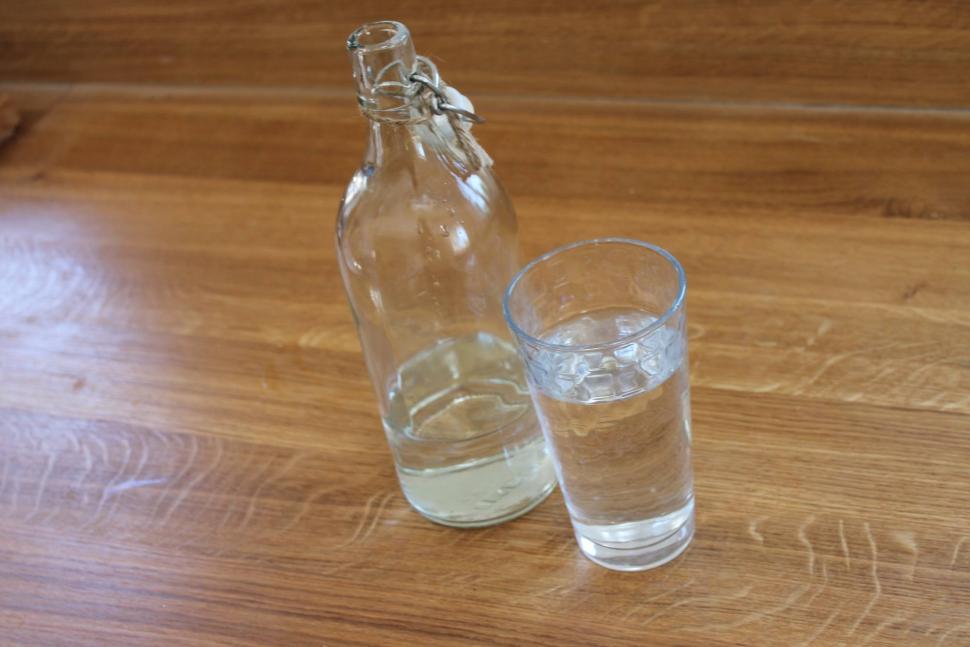

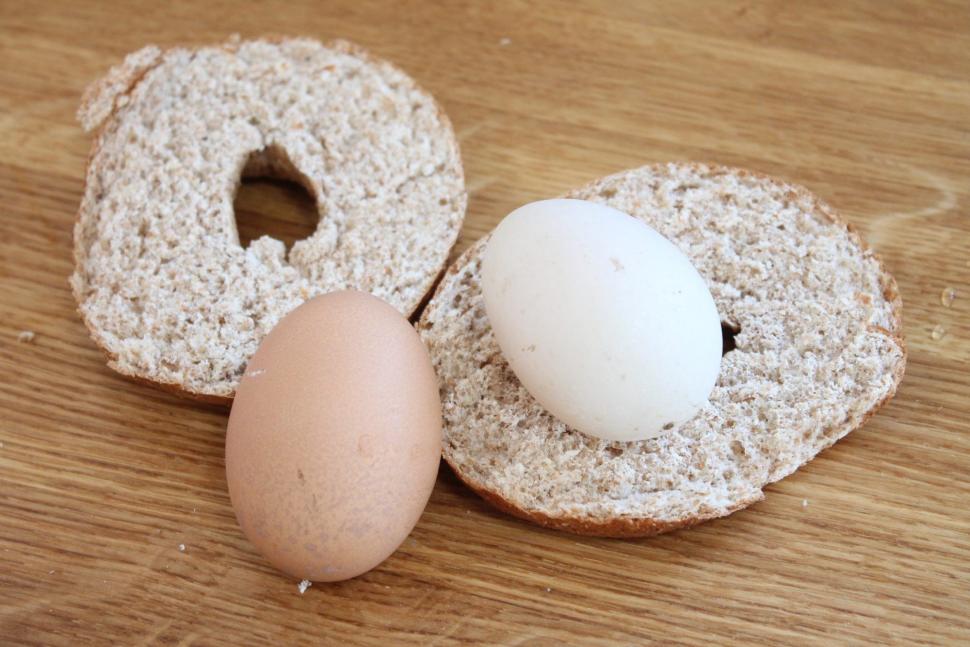
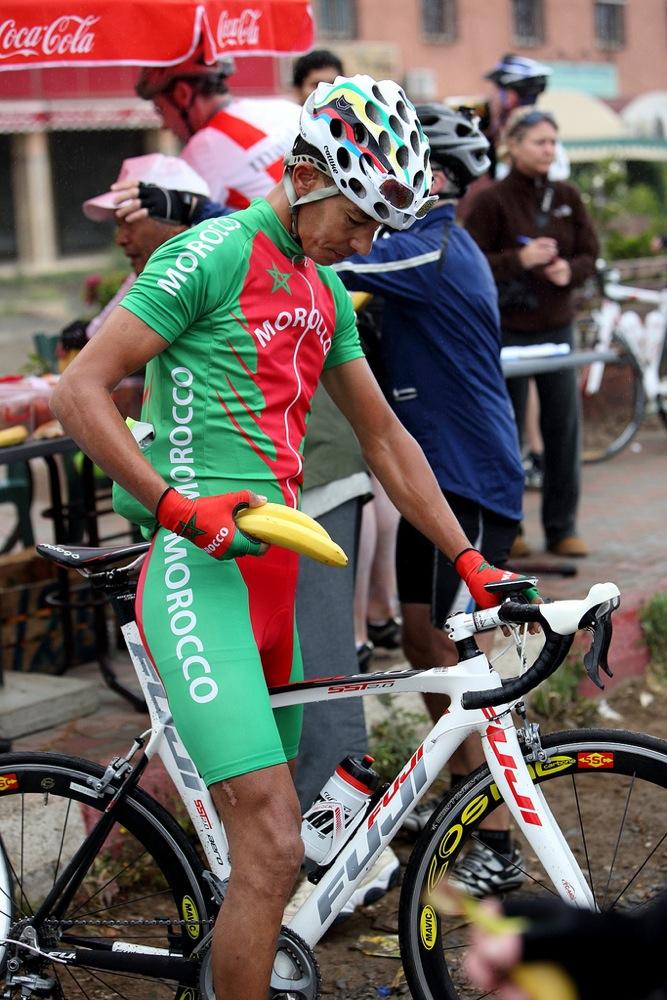
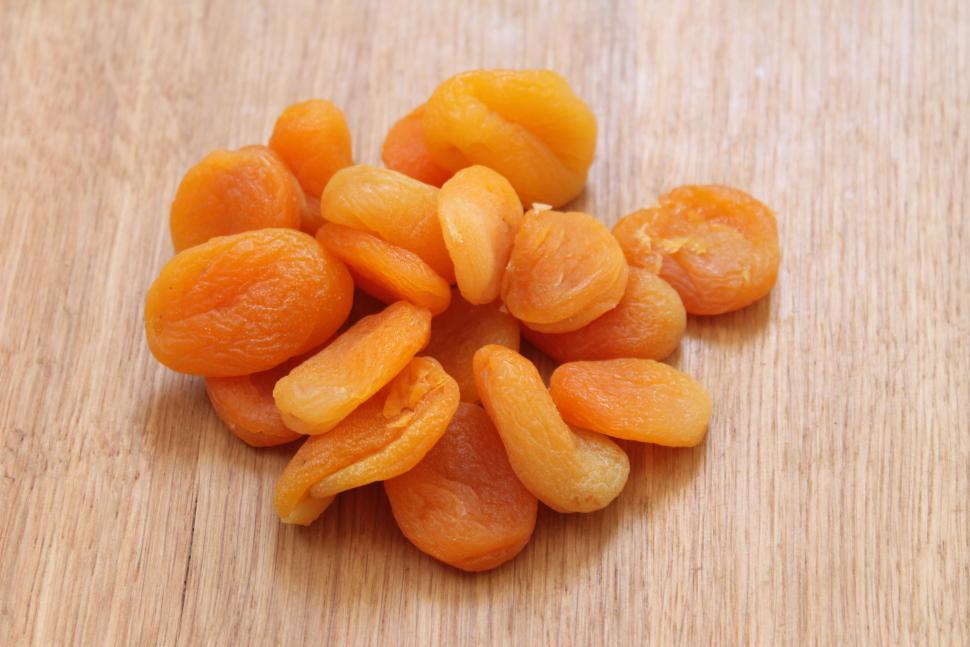
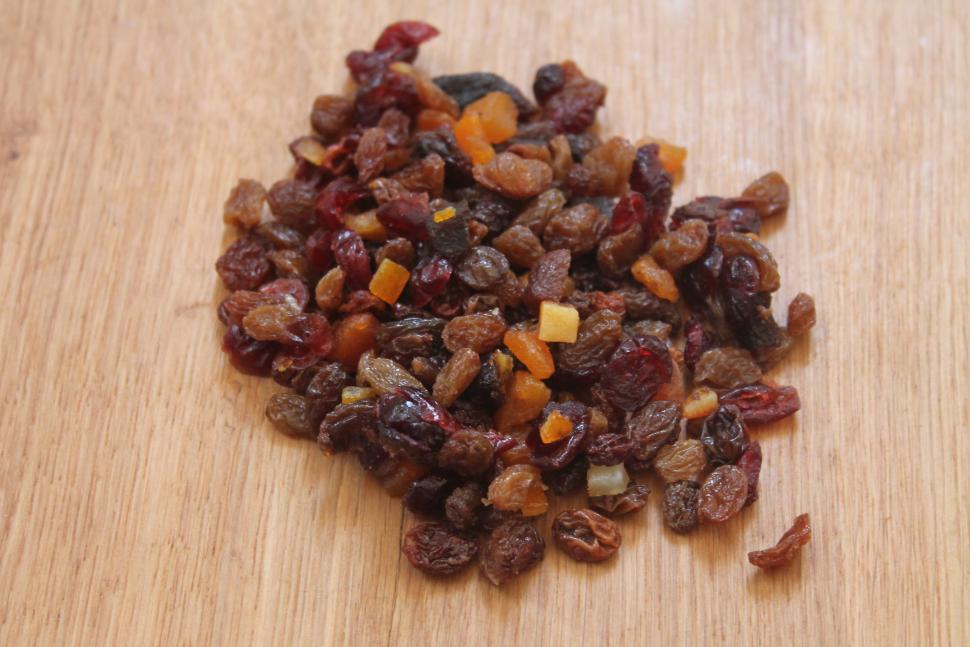
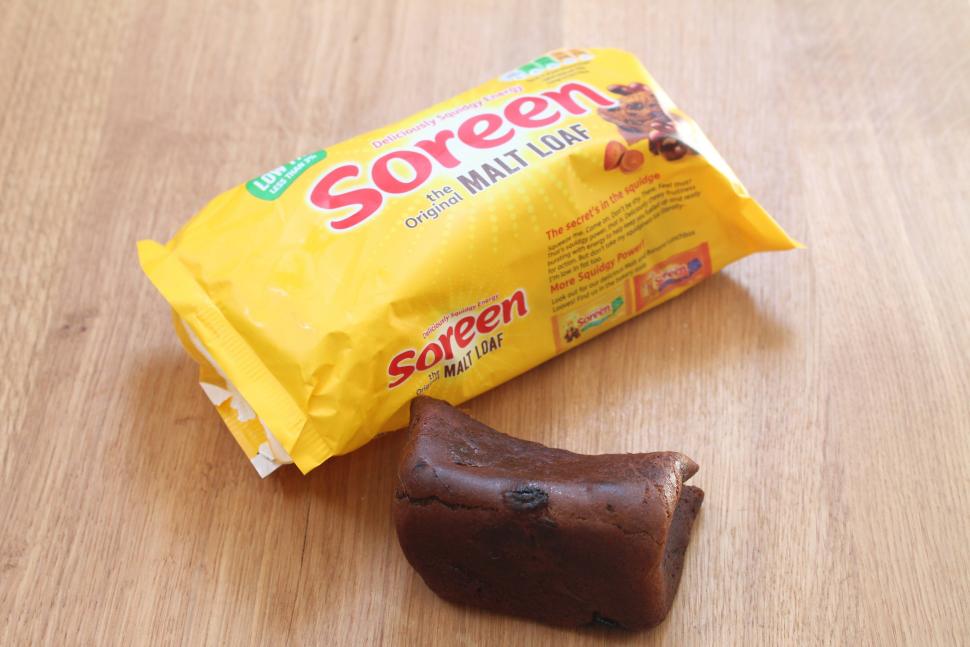
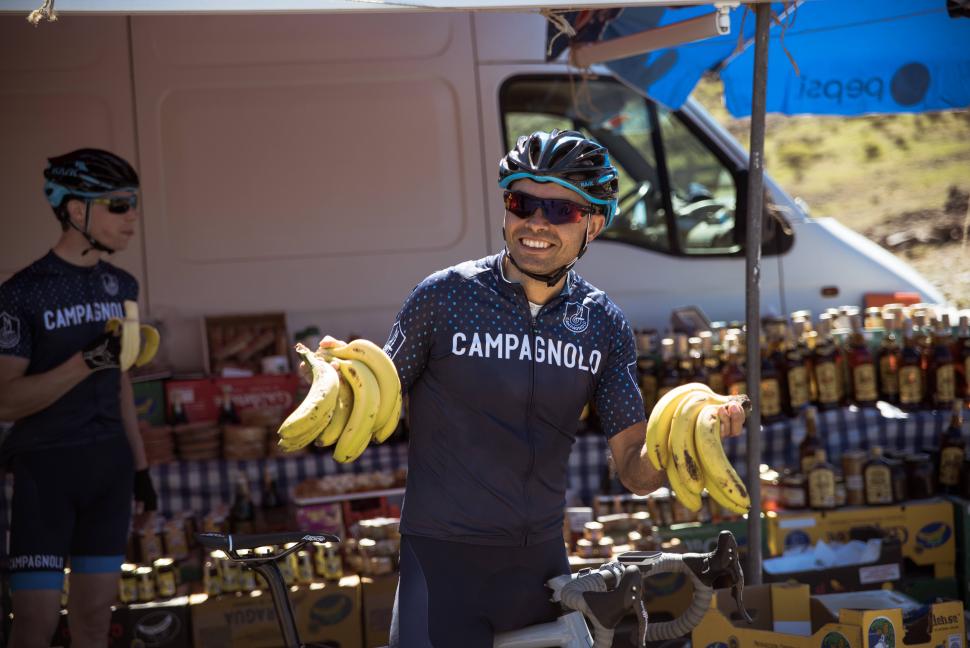

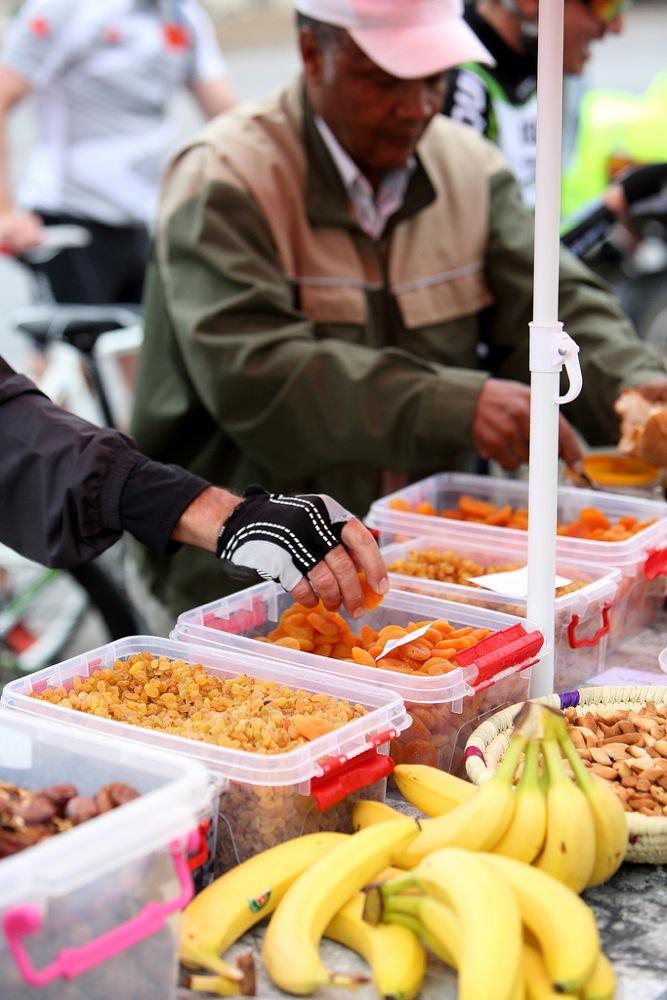
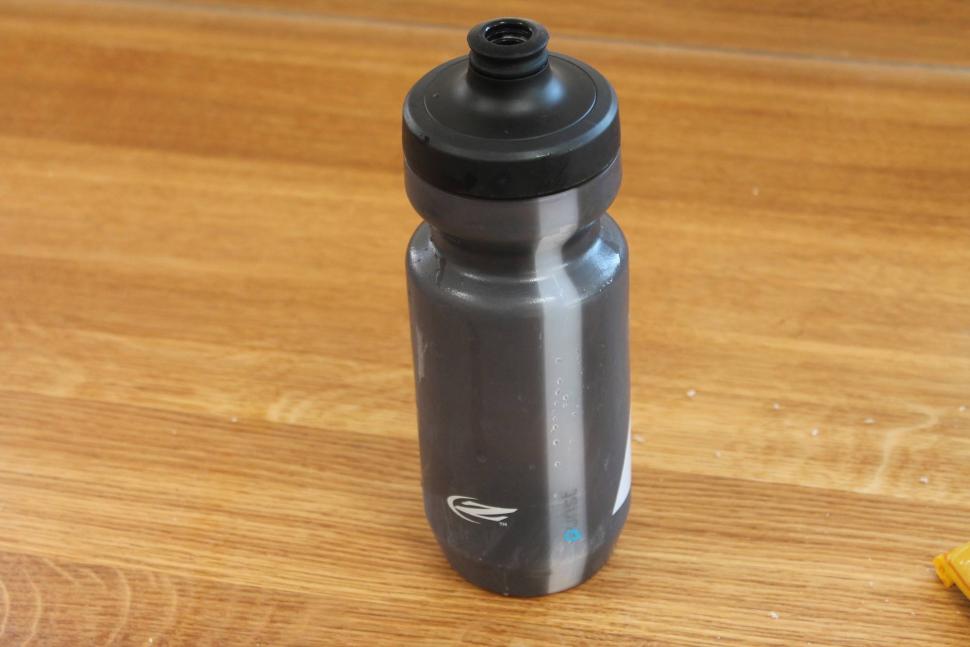
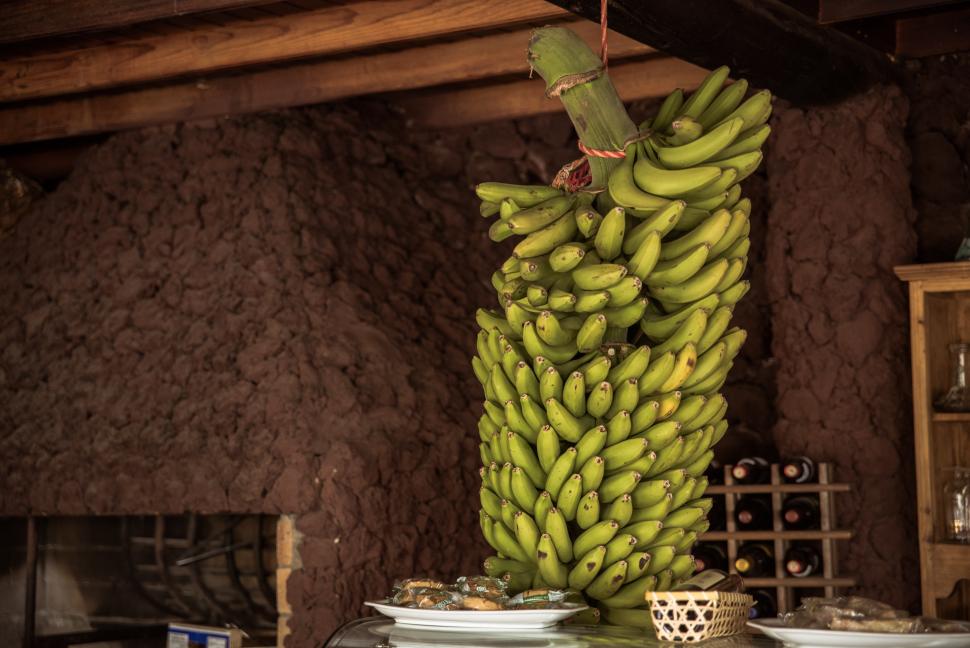

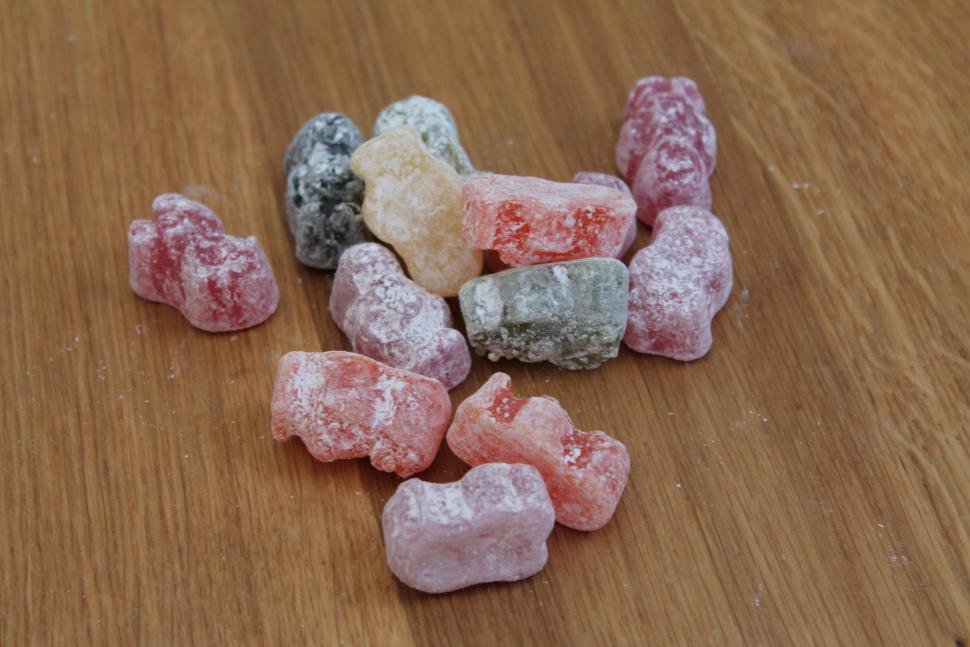
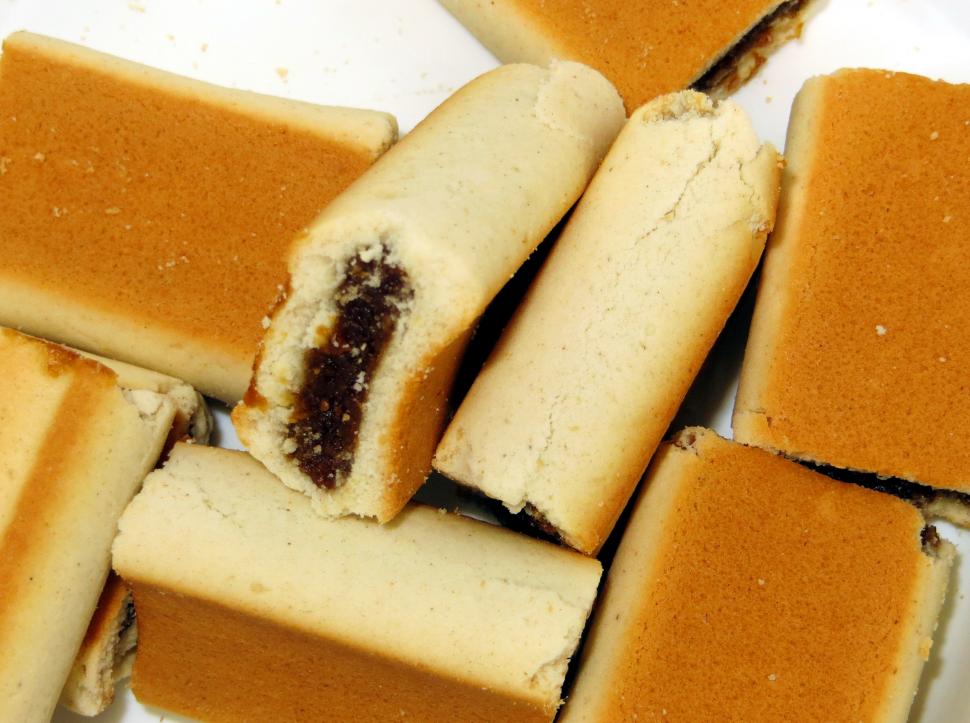
Add new comment
32 comments
How did you find it? I did the 100 mile and wouldn't have wanted to do another 50! Conditions much warmer than I expected
Really well organised event for a good cause.
I loved it, I did the 100 in just over 6 hours, the second 50 was tough. However looking at my stats the climbs were good but struggled on the flat. Weather was a touch warm and at one point ran out of water for about 20 minutes. However completed in 9 and half hours so that was within my target, next one the Dragon Devil !
As for SK of course being a pro he would not be the same as me, however IMHO (and these comments are just my view) the gels etc just simply do not help
Pages